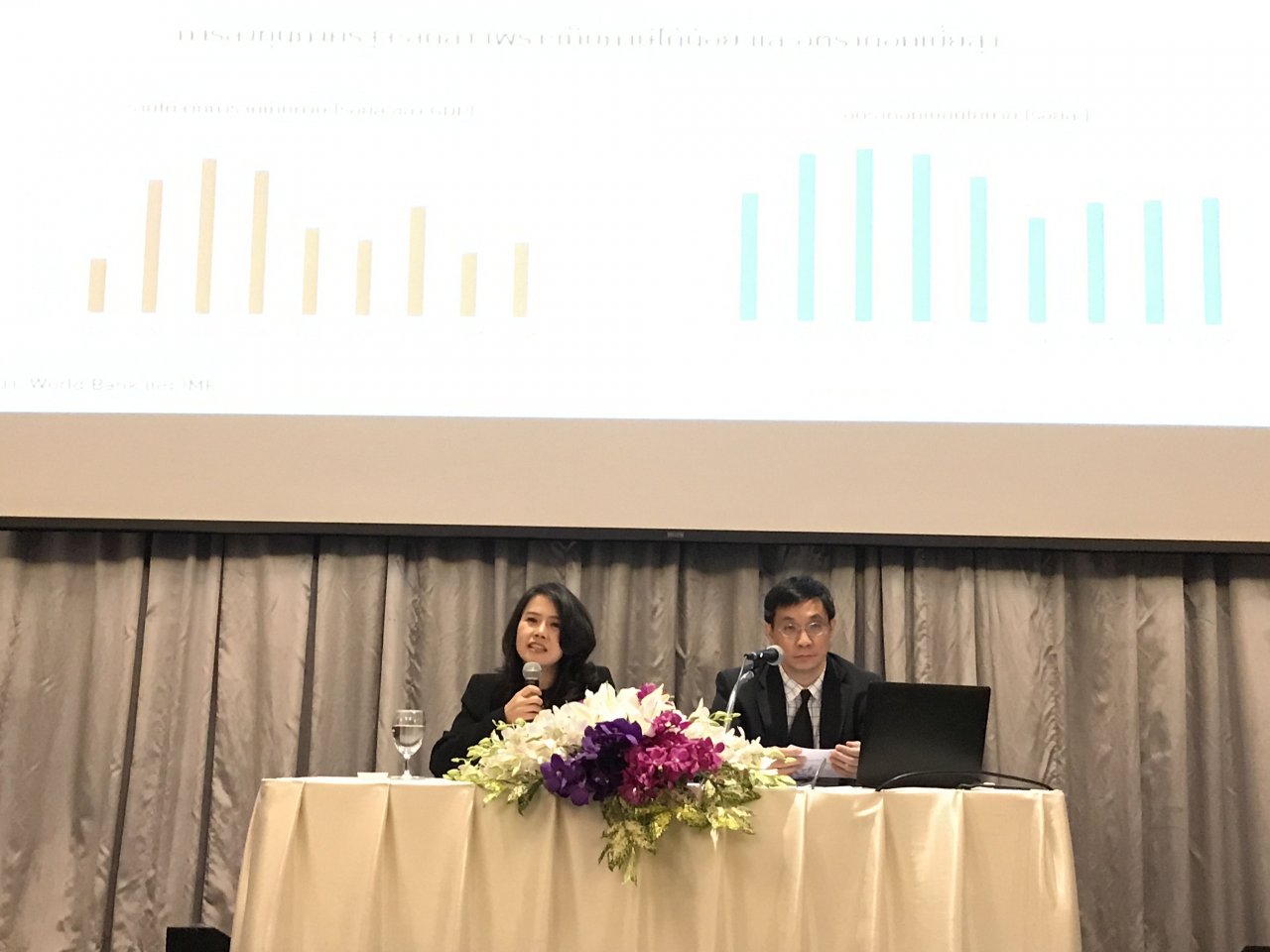Asean investments urged
VAST opportunities await Thai investors in neighbouring countries, experts said yesterday at a forum on overseas investment hosted by the Board of Investment (BOI) and the Thailand Development Research Institute (TDRI).
But alongside the success stories heard at the Thailand Overseas Investment Forum, they also warned that high public debt and regulatory changes posed big risks in the six countries highlighted in a study.
The countries in focus at the event were Indonesia, Vietnam, Myanmar, Cambodia, Laos and the Philippines.
“There is high risk and the prospect of high returns on investment in these countries, but the highest risk is to not invest overseas,” said Somkiat Tangkitvanich, president of TDRI, who led the study on investment opportunities in the six countries.
Many Thai companies have already invested in Myanmar and the country is looking more attractive after the United States lifted economic sanctions on Myanmar last year, he said.
The government under the leadership of Aung San Suu Kyi might not reform its economy fast enough and investors still often face power blackouts. Land leases remain costly, especially in Yangon, the forum heard.
However, Thai investors have done well there.
Osotsapa produces and sells energy drinks. Its Shark and M-150 brands dominate the country’s Bt5 billion energy drink market.
Thai President Foods Co plans to open a second factory there after succeeding in selling instant noodles under its MAMA brand.
Basini Enterprises Co runs a successful shoe-making business for both export and domestic markets.
The consumer market looks promising as the middle class is expected to expand to 10 million people in a few years from about five million currently, Somkiat said.
To find local partners, Thai investors should develop relations from being friends to business partners.
For Indonesia, Thai investors are advised to focus on two major islands – Sumatra and Java. Their combined gross domestic product (GDP) and population account for 80 per cent of the country’s total, said Saowaruj Rattanakhamfu, a researcher at TDRI.
Successful companies there include Thai Summit Auto, which manufactures car parts and supplies them to Toyota, Honda, Nissan and Mitsubishi.
Two Thai energy drink producers, Red Bull and M-150 Indonesia (Osotsapa) have dominated the market. Taokaenoi, a producer of seaweed snacks, also makes very good sales, which were up 34 per cent last year, Saowaruj said.
Investors should beware of land rights disputes with local people and logistics costs are relatively high, she said.
The International Monetary Fund projects annual per capita income rising to US$6,000 (Bt200,000) in 2022 from $4,000 currently.
Investment in Vietnam is encouraged due to fast development and integration with the global economy.
The middle class is expected to surge to 30 million people in the next few years from 10 million now.
“Vietnam’s exports are expected to overtake Thailand’s exports next year since the country has many free trade agreements,” said Tharabodee Serng-Adichaiwit, general manager of Bangkok Bank’s Ho Chi Minh City branch.
Many large and small Thai companies have already invested in Vietnam. Most Thai investors have succeeded in doing businesses and in investing in Vietnam. Only very few companies have failed, he said.
Betagen set up a trading company there and now enjoys annual sales of Bt200 million.
TFG, which produces animal feed and runs a piggery, has annual sales of Bt600 million, Saowaruj said. One risk factor is the high public debt of Vietnam’s government, at 59 per cent of GDP. Thai investors are advised to own 100 per cent of a company because it is hard to work with local partners.
“Local partners often want to make profits in the short run while Thai investors look for medium- and longer-term investment,” said Karn Chaiwanichkit, deputy managing director of Thai Corp International (Vietnam) Co.
Common risks for investment in those six countries are the frequent changes in regulations and differences in law interpretations among officials, experts said.
The Board of Investment sees Thai investment in Asean reaching $10 billion this year.
Thais continue to invest “substantially” in other Southeast Asian countries, drawn by their faster economic growth and rising middle class, said Chokedee Kaewsang deputy secretary-general of the BoI.
He said Thai overseas investment in the past five months totalled US$5.5 billion – mostly in the region. It’s expected to reach US$10 billion by year’s end.
Last year it was $14 billion, rising from US$1 billion 10 years ago, he said.
Source: http://www.nationmultimedia.com/detail/Economy/30324018


 Thailand
Thailand




